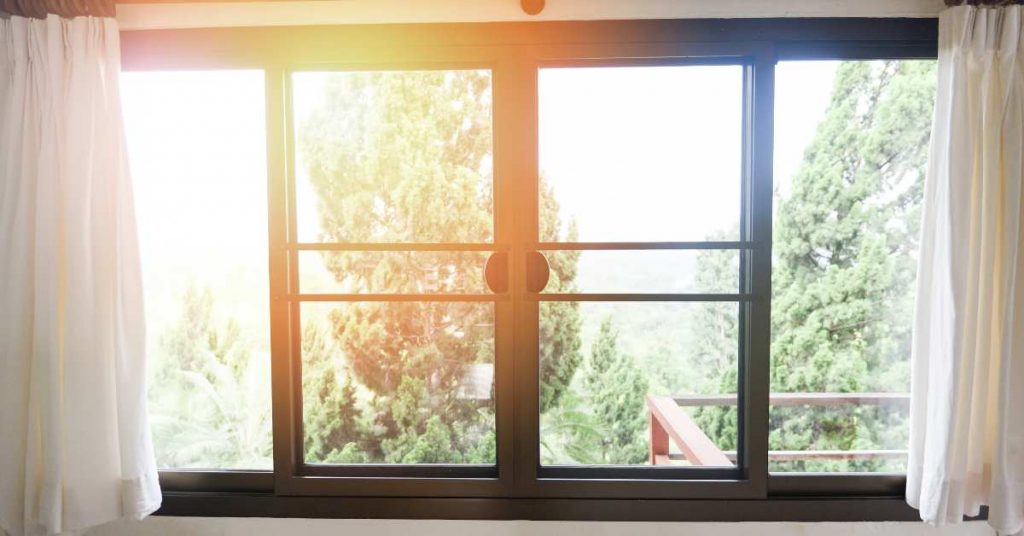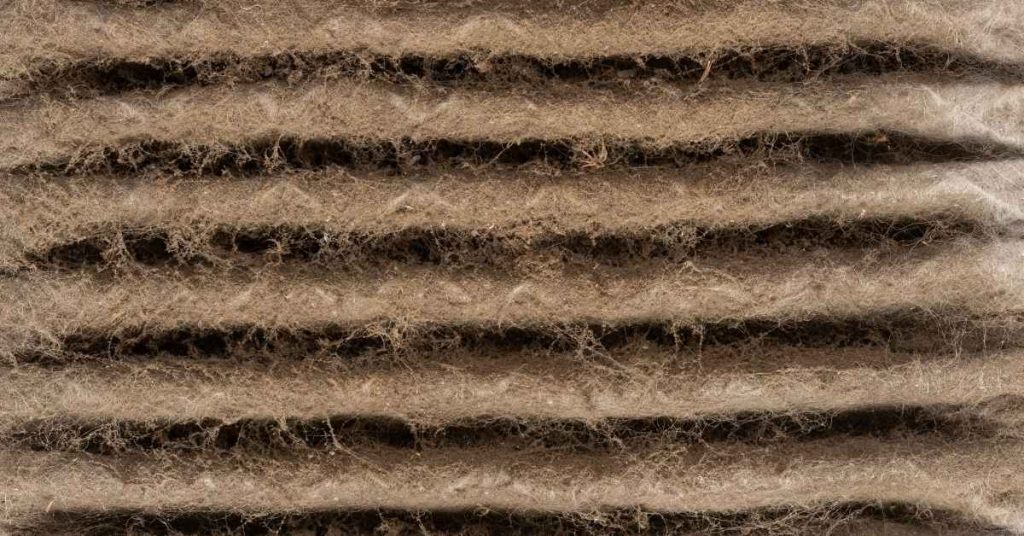
When one room in your home consistently feels hotter than the rest, it can be both uncomfortable and inefficient. Several factors can contribute to this issue, including:
- Improper Airflow: Blocked or closed vents, ductwork issues, or a malfunctioning blower fan can restrict the flow of conditioned air to the room, causing it to heat up more quickly.
- Inadequate Insulation: Insufficient insulation in the walls, ceilings, or floors of the hot room can allow heat to penetrate or escape more easily, making it harder to maintain a comfortable temperature.
- Solar Heat Gain: If the hot room receives direct sunlight for a significant portion of the day, it can result in increased heat inside, especially during the warmer months.
- Thermostat Location: The thermostat’s placement in a room that doesn’t accurately represent the temperature throughout the house can lead to uneven cooling or heating.
- Leaky Windows and Doors: Poorly sealed windows and doors can allow warm air to enter or escape, affecting the room’s temperature.
- Ductwork Issues: Damaged or improperly designed ductwork can lead to imbalanced airflow, causing some rooms to heat up more quickly.
To address a room that’s consistently hotter than the rest, consider the following steps:
- Check Vents and Airflow: Ensure that vents in the hot room are open and unobstructed. Balance the airflow by partially closing vents in cooler rooms.
- Insulation Improvements: Add or upgrade insulation in the room’s walls, attic, or floors to regulate temperature more effectively.
- Window Coverings: Use curtains or blinds to block direct sunlight and reduce solar heat gain.
- Seal Leaks: Seal any gaps or leaks in windows, doors, and ductwork to prevent hot air from entering or escaping.
- Thermostat Adjustment: Consider relocating the thermostat to a more central location or using a smart thermostat with room sensors for better temperature control.
- Professional Assessment: If issues persist, consult with an HVAC technician or energy auditor to identify and address more complex problems, such as ductwork issues or HVAC system imbalances.
Why One Room is Hotter than Others and How to Fix the Problem
Let us now look in more details why one room in your house is hotter than the others and how you can fix the problem.
1. Poor House Insulation

Insulation is vital in ensuring the effectiveness of an HVAC system. The idea behind insulation is to ensure that cooled air remains indoor during summer and also that heated air does not leak to the outside during winter.
If the particular room in your house is poorly insulated, it will allow heat exchange between the indoors and the outdoors and that is how heat from the outside will enter the house. This process will counter your air conditioner’s work and you will notice that the room will always be hotter than others.
If that is the case, you will also notice that that the room will be colder than the rest during winter. That is because heat will escape from the room to the outside.
Insulation is not something most homeowners can comfortably do on their own. In most homes, poor insulation is manifested in the form of inefficient and aged windows.
Start by checking windows to see if they are properly sealed. Re-caulking windows to cut off “communication” between indoors and outdoors is a good way to fix the problem but if you have really old windows you can replace them with modern and efficient ones.
Proper insulation is also important in the attic. As you already know, attics tend to be quite hot during the summer. A poorly insulated attic will cause the room below to heat up.
If you can clearly see floor joists in your attic then it is not properly insulated and could be the cause of the excess heat in the room below. Have the attic properly insulated and see if that helps.
2. Exposure to Direct Sunlight

The design of your house could be to blame for the excess heat in one of your rooms. We all love big windows (for natural light and views) but that could be a problem during the hot months of summer.
Unlike walls, window glass heats up quickly when exposed to the sun and then goes ahead to heat up the room, creating a greenhouse effect especially if the door in the room is closed.
So, does the particular room that is hotter than the rest have a big window that is in direct contact with the sun when it is at its hottest? If so, that could very well be the source of the problem.
To deal with this problem, you can consider blackout curtains, blinds and awnings to block the sunlight when it at its hottest. Opening the room’s door and using a fan will also be an excellent way to keep the air circulating throughout the house.
A long-term solution would be planting trees close to the window to provide a natural barrier between the room and the sun. That may however work against you if you love the view from the window.
3. Poorly Sized AC System
Is the room that is hotter than the others also the farthest away in the house? If that is the case, you could be dealing with an undersized air conditioning system.
As I mentioned, in forced heating and cooling, air is distributed from a single location. That means that if the AC is too small for your house, the room farthest from the location of the AC will have insufficient flow of air.
If the room cannot get enough cold air from the AC, it will definitely be hotter than the others. It is like when you have low water pressure in the house. The faucets farthest away in the house will be the most affected.
There are several things you can do if your air conditioner is too small for your house. They include:
- Complement the AC with a fan
- Install a wall air conditioner
- Consider a window air conditioner
- Use a portable air conditioner in the room
- Upgrade the central air system with a properly sized system
You may also be surprised to know that your air conditioner could be too big. In air conditioning, bigger is not always better.
You see, an oversized air conditioner will only need to run for short periods to cool the house, a condition known as short-cycling. However, air conditioners are designed to not only cool the house but to also reduce humidity.
By short-cycling, a big AC unit will not lower the humidity. And the one thing we know about humidity is that it makes it feel hotter than it actually is. Excess humidity in one of the rooms could be the reason it feels hotter than the rest.
If humidity is the problem, you can invest in a dehumidifier to bring it to the desired levels. You can also decide to replace the entire system with a properly sized unit.
4. Ductwork Problems

Air conditioners have 2 sets of air ducts. There are return air ducts which carry hot air from a room to the AC and supply air ducts which carry conditioned air from the AC back to the room.
One of the main problems associated with ductwork is leaks. If the supply air duct dedicated to a certain room is leaking out the cooled air, less cool air will get to the room and as a result the room will be hotter than the other rooms in the house.
Another problem with air ducts is clogs. Dust and other impurities can collect inside the ductwork and restrict the flow of cooled air from the AC to the room. Needless to say, the room will be hotter than the rest of the house.
Poorly insulated air ducts can also cause the air inside to absorb heat from the surrounding meaning that the air will not cool the room to the required level.
One thing you can do is place your hand close to the room’s supply air vent and feel the intensity of the cold air flowing in. Compare that to the other rooms in the house which are being sufficiently cooled.
If the airflow in the hot room is low, you could very well be having a problem with your ductwork. In this case, I would recommend bringing an HVAC technician over to inspect the ductwork, clean it, fix leaks, insulate it properly and also inspect the entire HVAC system.
5. Dirty Air Filter

Air conditioners have an air filter installed on the return air ducts. The function of the air filter is to clean the air by removing dust, pollen, mold spores and other impurities thereby preventing them from being circulated back to the house.
AC filters should be replaced after every 3 months. Failing to replace the air filter will make it get clogged, restricting the flow of air to the AC unit.
When less air is getting to the AC unit, there will be even less air to distribute to the different areas of your house, especially the room farthest from the AC. As a result, that room will be hotter than other rooms in the house.
Another effect of a clogged air filter is that the AC will be forced to work extra harder to pull air from the house. The extra strain on the AC will result in consumption of more electricity and hence high energy bills.
The good thing is that replacing an AC filter is easy. You just need to locate yours, check the required size and purchase and exact one like that.
6. Blocked or Closed Air Vents
One room in your house could be hotter than the rest because the air vents are closed or blocked/obstructed. If the supply air vent for instance is blocked, there will be no way for cooled air from the AC to flow to the room.
To check if that is the problem, place the palm of your hand very close to the air vents. With return air vents, you should feel a suction effect on your palm while with supply air vents you should feel cold air being blown towards your palm.
If there is no air flowing out of your supply air vent, it is most likely closed. Go ahead and open it and check if that restores the flow of cool air to the room. Often homeowners close off some vents in unused rooms so that they can channel the cool air to the rooms being occupied.
Also, make sure that your vents are not being obstructed by objects like furniture in the room. Needless to say, that prevents cool air from being released in the room and also puts a strain on your HVAC system.
7. You Live in a Storied House
In Physics, hot air will always rise while cold air will sink. Most folks who live in a multi-level house know this fact only too well.
Hot air is less dense than cold air. For that reason, it will always rise over cold air and that the reason why upstairs tend to be hotter than the downstairs.
So, is the particular room that is hotter than the rest located in the upstairs? Fixing such problems is not always easy and will mostly cost you some good money.
The cheapest thing you can do to balance the air in your upstairs and downstairs is to utilize your ceiling fan. The ceiling fan pulls the cold air from the downstairs while sending the hot air downstairs.
Another thing you can try doing is closing off some of the supply air vents downstairs so that you can send more cooled air upstairs. Be careful with this as closing air vents can sometimes damage the AC system.
Some HVAC contractors will also recommend installing manual dampers in your HVAC system. Dampers work very much like water valves where you can close some valves off to send more water elsewhere.

With these dampers, you can close off or adjust air supply to the different areas of your house. The idea here is to send more cold air to the room that is hotter than others.
One of the best solution to this problem however is creating dual/multi zoned system in your house. A zoned system involves the use of multiple thermostats and modulating dampers (automatic) to cool the different areas of your house.
Instead of using 1 thermostat to cool the different areas of your house, each zone will have its own thermostat. When a particular zone calls for cooling, the dampers to that zone will open up while all the others will remain closed.
That will forced all the cooled air from the AC to flow to the zone that needs cooling. Installing these system is expensive but it is quite effective and in the long-term it is even more energy-efficient than the usual system.
This job needs to be done by a professional HVAC contractor. The professional will advise if that is the best approach to the problem or if you should consider another solution.
If your AC system is too old or not properly sized, the contractor can even recommend installing a ductless AC system. These system provides built-in zoning whereby each room is cooled to the desired temperature and does not use ductwork.
8. You Use Can Lights

Does the room that is hotter than the rest in the house have can lights? That can explain why it is way hotter than other rooms despite being connected to the same AC system.
You see, can lights needs cool air and as result the can has holes leading out to the attic. As you know, the attic can get quite hot during the summer and heat could be escaping from the attic to the room through these holes.
If this is the problem you are having, you can block the holes using a special high temperature tape. You will first need to remove the bulb to access the holes and then put it back after blocking them off. You can leave one hole open though.
I would also recommend using bulbs with low wattage (like instead of using a 100W-bulb you can consider a 60W-bulb) to reduce the heat generated by the bulb.
Check out the video below to learn how you can fix the problem on your own.
Wrap Up
As you can see, it is not easy to tell why one room in your house is hotter than the rest. However, you can use the elimination method to get to the root of the problem. I will advise you to work with professionals for problems that are beyond your DIY comfort zone.
